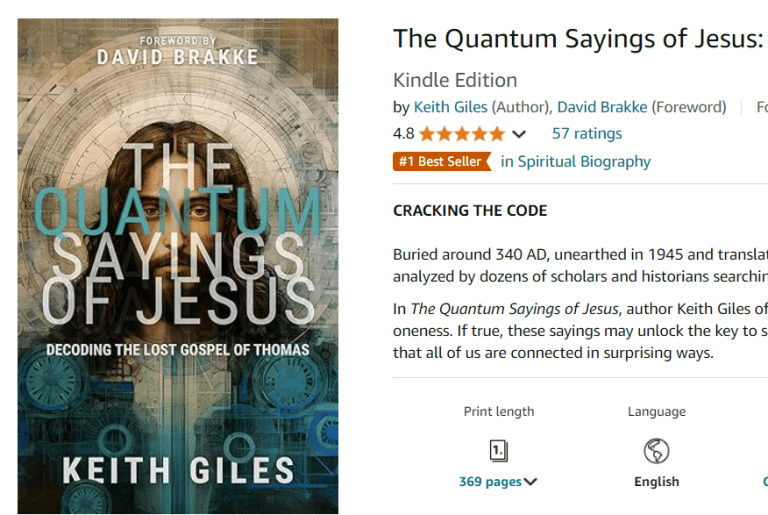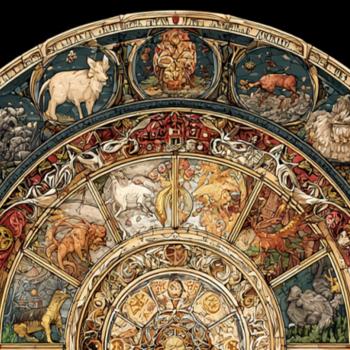
You ever notice how the one thing Jesus talked about the most—God’s unconditional love—is the very thing religion seems to bury under layers of rules, doctrines, and gatekeepers? It’s almost like there’s a system in place designed to keep people from experiencing the simple, beautiful truth that God is love and that this love is for everyone.
Now, if that sounds a little cynical, stick with me. The deeper I go into this, the more I realize that organized religion—especially the institutional church—has created roadblocks that prevent people from hearing the message of love that God wants them to hear.
Roadblock #1: The Idea That You’re Not Good Enough
One of the first things most religious systems do is convince people that they are broken, sinful, and in desperate need of fixing. Now, don’t get me wrong, we all have our flaws. But the underlying message is often shame-based rather than love-based.
Instead of hearing, “You are deeply loved just as you are,” many of us are taught, “You are a wretch, and only if you follow the rules can you hope to be accepted.”
That’s not the message Jesus shared. He told stories about how God is like a loving parent running down the road to embrace a lost child. No conditions. No proving yourself first. Just love.
But religion? Religion thrives on control. And if it can convince you that you are fundamentally unworthy, it can keep you dependent on the system rather than discovering the freedom of simply resting in God’s love.
Roadblock #2: The Us vs. Them Mentality
One of the quickest ways to build a religious empire is to create an “in-group” and an “out-group.” We see this in churches all the time: Our doctrine is correct, everyone else is wrong.
But Jesus didn’t operate that way. In fact, he consistently tore down those boundaries. He ate with pagans, embraced outsiders, and went out of his way to include those that religious leaders excluded, including women, Roman soldiers, and Samaritans.
Yet, here we are, centuries later, and many churches still teach that God’s love is only for those who believe the right things, pray the right prayers, or belong to the right denomination.
If your version of God’s love comes with exclusions, you might be following religion, not Jesus.
Roadblock #3: The Fear of Asking Questions
Ever been told not to ask too many questions? That doubting is dangerous? That faith means accepting everything without pushing back?
That’s a religious roadblock.
Jesus loved questions. He asked over 300 of them in the Gospels. He answered far fewer. Why? Because faith isn’t about having all the answers—it’s about asking the right questions.
But religion, especially when it becomes an institution, doesn’t like uncertainty. It wants compliance, not curiosity. And so, people who start asking hard questions—about hell, about the Bible, about who God really is—often find themselves shamed, silenced, or even pushed out.
But real faith? Real faith welcomes those questions because it trusts that God is big enough to handle them.
Roadblock #4: The Transactional Gospel
So many churches preach a conditional version of God’s love: If you believe this… if you do that… if you give this much… if you say the right prayer… then God will accept you.
But Jesus didn’t preach a transactional gospel—he preached a transformational one. He didn’t say, “Follow me, and maybe I’ll love you.” He said, You are already loved—now go and live in that love.
The institutional church often turns salvation into a contract. But in reality, it’s a gift that has already been given. The only thing left is for us to wake up to it.
So What Do We Do About It?
If religion has put roadblocks in the way of God’s love, how do we clear the path?
- Recognize that you are already loved. You don’t have to earn it. You don’t have to prove yourself. You are enough, just as you are.
- Start asking questions again. Challenge the systems that tell you God’s love has limits. Look at Jesus—how did he actually treat people? That’s your answer.
- Break down the barriers. If your faith has led you to exclude others, reconsider whether that aligns with the radical love Jesus demonstrated.
- Step away from fear-based religion. The God Jesus reveals is not a God of fear and control, but of love and liberation.
Final Thoughts
Jesus came to set people free—not to put them in new forms of religious bondage.
If your faith journey feels like a prison, it might be time to rethink whether you’re following Jesus or just following a religious control system built in his name.
God’s love isn’t trapped in a church building. It isn’t confined to a doctrine. It isn’t reserved for the few who get it all right. It’s bigger, wider, deeper, and more inclusive than any of us can imagine.
And once you see it, you can’t unsee it.
So let’s step out from behind the roadblocks. Let’s reclaim the simple, profound truth: God is love, and that love is for all.

The newest book from Keith Giles, “The Quantum Sayings of Jesus: Decoding the Lost Gospel of Thomas” is available now on Amazon. Order HERE>
Keith Giles is the best-selling author of the Jesus Un series. He has been interviewed on CNN with Anderson Cooper, Coast to Coast Radio with George Noory, USA Today, BuzzFeed, and John Fugelsang’s “Tell Me Everything.”
He co-hosts The Heretic Happy Hour Podcast and his solo podcast, Second Cup With Keith which are both available on Spotify, Amazon, Apple, Podbean or wherever you find great podcasts.













